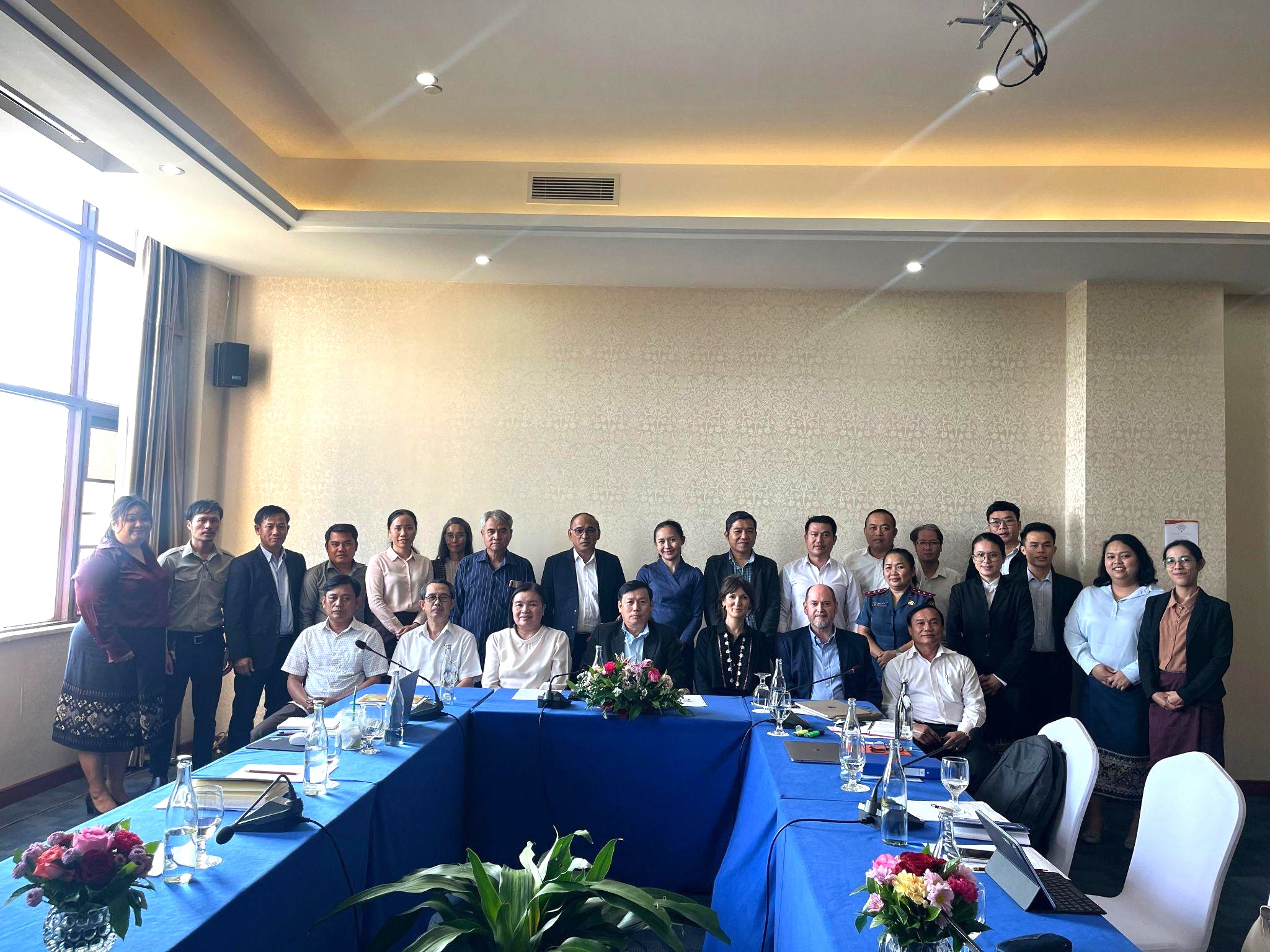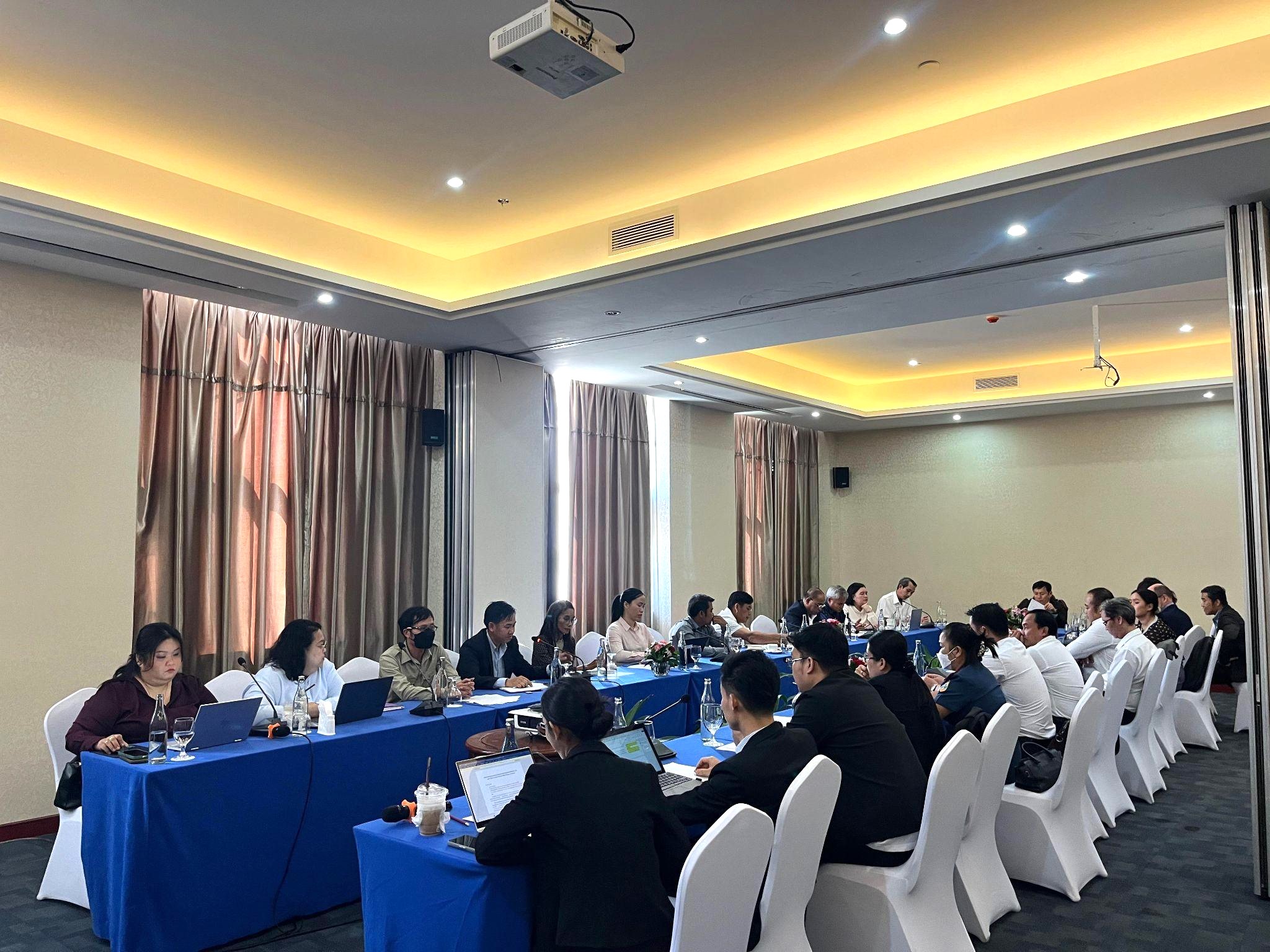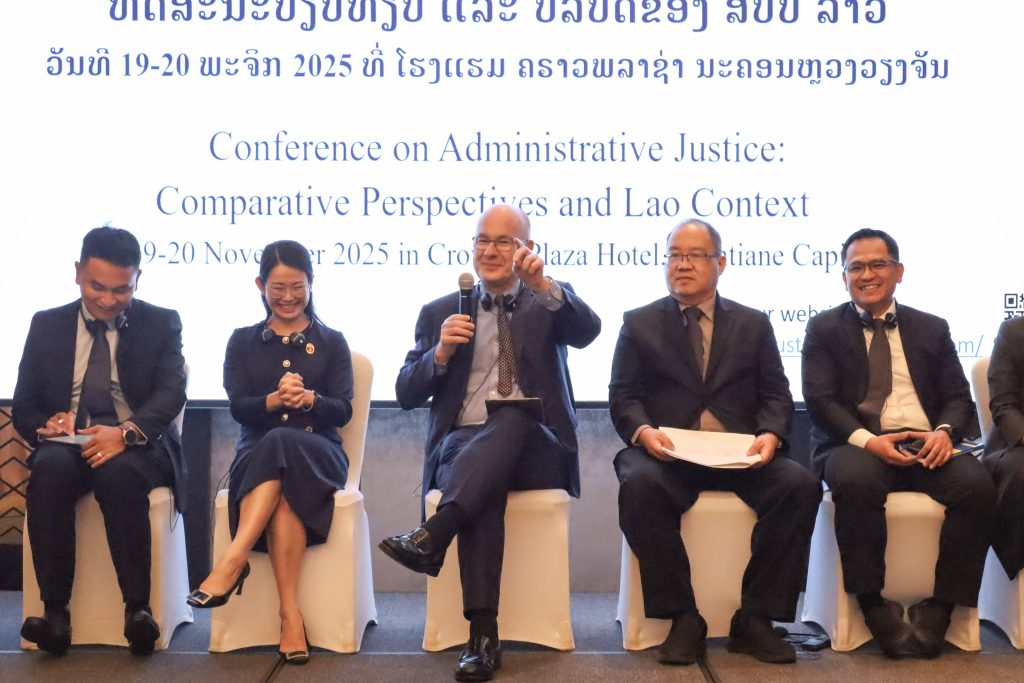On 18 November 2024, the JuSTICE project held its first Technical Consultation Meeting with the Project’s key stakeholders aiming to develop Climate and Environmental Justice (CEJ) activities as part of its new component 4. The component 4 is an essential pillar of the JuSTICE Project with a focus on enhancing the capacity of judicial actors in environmental law. The initiative seeks to align Laos’ national environmental standards with international benchmarks and foster sustainable development.
The meeting was chaired by Mr. Khamphone Sipaseuth (National Project Director) and attended by key representatives from relevant partners including the Ministry of Natural Resources and Environment (MONRE), the Office of the Supreme People’s Prosecutor (OSPP), the People’s Supreme Court (PSC), the Lao Bar Association (LBA), Justice Administrative and Promotion Department (JAPD), the Legal Dissemination Department (LDD), the National Institute of Justice (NIJ), and the Department of Legislation (DOL).

The primary objective of the coordination meeting was to explain the CEJ component’s objectives, the needs expressed by stakeholders through bilateral consultations and to explore how the JuSTICE Project can address these priorities effectively. The meeting also allowed to introduce Mr. Matthew Baird, the newly recruited environmental law expert for Component 4. With extensive expertise in environmental law across various region including Southeast Asia, Mr. Mathew Baird along with the JuSTICE Project team will lead the development and implementation of customized activities designed to meet the specific needs of partners in the area of CEJ.
The discussions covered critical areas of focus for advancing environmental justice in Lao PDR. Stakeholders emphasized the necessity of comprehensive training programs to build expertise in environmental law as the field remains relatively new and underdeveloped in the country. Practical tools, such as guidebooks and procedural frameworks, were identified as essential resources to facilitate the effective implementation of environmental laws and to promote seamless inter-agency coordination.
Furthermore, the consultation provided an opportunity for the stakeholders to voice their concerns, share insights, and align their efforts in enhancing the rolling out of the CEJ under the Project. This dialogue not only strengthened partnerships but also laid a solid foundation for future initiatives that address pressing environmental challenges, especially contextualizing the standards into Lao context.
Looking ahead, the CEJ Consultation Meeting underscored the importance of tailored technical support and capacity-building initiatives to empower judicial actors and other stakeholders. By addressing these needs, the JuSTICE project is committed to play a crucial role in advocating and promoting the climate and environmental justice in Lao PDR.




